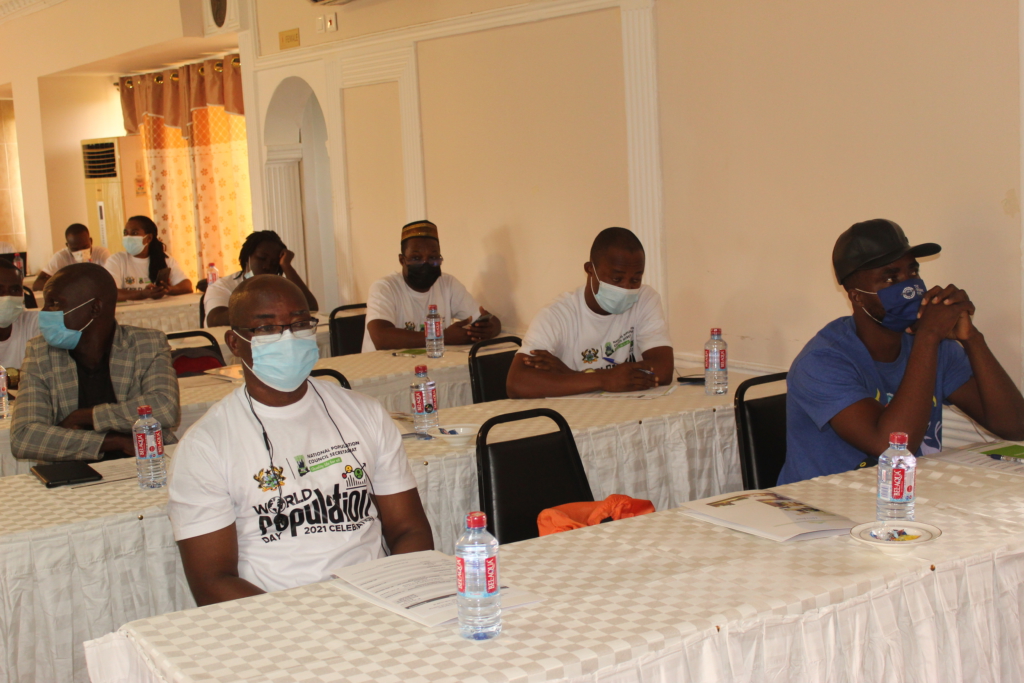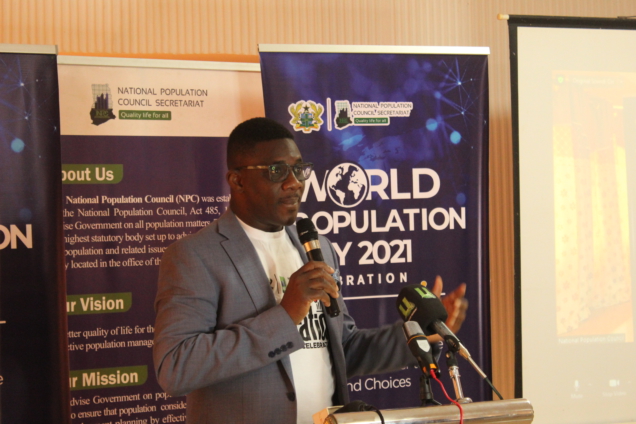Executive Director, National Population Council (NPC), Dr Leticia Appiah has called for a national dialogue on how to operationalise the prioritization of reproductive health to create an enabling environment for national development.
“There is the need to consider reproductive health in the wider context of the national development strategy and to embark on a well-coordinated and sustained programme spearheaded by strong government commitment and the support of development partners,” she said.
The Executive Director made the call at this year's World Population Day on the theme: "Prioritising Reproductive Health as an Answer to Rights and Choices".
She said the theme could not have been more appropriate with Covid-19 compelling individuals and governments to prioritise and pay much attention to programmes and interventions that yielded significant benefits far beyond their primary focus.
Dr Appiah said the pandemic had compromised health care systems particularly in the area of sexual and reproductive health, stressing that disruptions in the supply of contraceptives in combination with lockdowns were predicted to result in a sharp rise in unplanned pregnancies for the most vulnerable.

She noted that it was extremely difficult to achieve Sustainable Development Goal without giving the appropriate attention to reproductive health and family planning, saying, “Women are half the population and they know how to take care of themselves and contribute their quota if they are given access to quality reproductive healthcare information and services”.
“Prioritising reproductive health will save our national health insurance, reduce the cost of inequality, give us value for money in education, keep us healthier, happier, and more prosperous,” and these are the SDGs, Dr Appiah emphasized.
She said: “when reproductive health is prioritised, women are empowered both with information and services, maternal mortalities and morbidities will significantly reduce with the associated social and economic benefits to families and the nation as a whole.”
Dr Appiah stated that prioritising reproductive health would also reduce the cost of meeting multiple indicators such as HIV and AIDS, malaria, cholera, and malnutrition with social and economic costs to families and nations.
“It also helps to bridge the inequality and inequity gaps and the associated costs. With widening inequality, the poor become poorer and more numerous, and the middle-class shrinks and their income stagnates.”
The 2020 Annual Report of the Family Health Division of the Ghana Health Service recorded an increase of 4.3 per cent in the anti-natal care visits.
She said the figures called for an attention to prioritise reproductive health rights and choices to meet the 2030 agenda of the Sustainable Development Goals.
Mr Niyi Ojuolape, the UNFPA Country Representative to Ghana, said Covid-19 had exposed serious gaps and challenges in the provision of sexual and reproductive health services for women and girls.
The situation, Mr Ojuolape said had worsened gender inequality, gender-based violence, and harmful practices including child marriage, which called for urgent attention.
UNFPA research in March estimated 12 million women experienced disruptions to family planning services leading to 1.4 million unintended pregnancies.
Ghana Health Service 2020 report on teenage pregnancies shows that 2,865 girls got pregnant between the ages of 10 and 14 years while 107,023 girls got pregnant between 15 and 19 years.
The report also shows that nearly 301 girls are impregnated every day and 13 teenage pregnancies are recorded every one hour.
Mr Ojuolape said teenage pregnancies were due to lack of access to education and reproductive health services, sexual violence and coercion, gender inequality, child marriage, national policies restricting access to contraception, and poverty.
He said the UNFPA had undertaken interventions to address challenges of Adolescent and Reproductive Health issues by procuring 45 per cent of national public sector contraceptive requirements, ensuring the survival of women, young girls during childbirth, midwifery, and capacity building of health care providers.
Latest Stories
-
‘In Mahama’s era students lacked chalk, but are now receiving tablets’ – Bawumia
4 mins -
Project commissioning not a ploy to attract votes – Oppong Nkrumah
6 mins -
CBG records GH¢1bn revenue in Q3
8 mins -
Mahama vows to create an agro-processing zone in Afram Plains
23 mins -
Political parties should plan for losses, not just wins – IGP advises
24 mins -
524 Diasporan Africans granted Ghanaian citizenship in ceremony
26 mins -
Mahama urges Afram Plains North residents to avoid ‘skirt and blouse’ voting
28 mins -
Asantehene receives more 19th century gold ornament and regalia
35 mins -
Hohoe Ghana Blind Union organises training for members ahead of Election 2024
41 mins -
Alan Kyerematen reveals his future plans for Ghanaian Health professionals
42 mins -
AAIN empowers women and small enterprises in Upper East Region through SHINE project
43 mins -
Akufo-Addo leads nationwide commissioning of 80 educational projects
49 mins -
Ghana and Seychelles strengthen bilateral ties with focus on key sectors
1 hour -
National Elections Security Taskforce meets political party heads ahead of December elections
1 hour -
Samsung’s AI-powered innovations honored by Consumer Technology Association
2 hours

